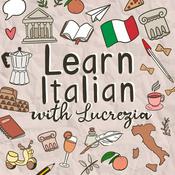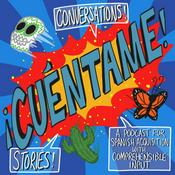Is My Child A Monster? A Parenting Therapy Podcast
Leslie Cohen-Rubury

Último episódio
102 episódios
How To Use Validation To Prioritize Family Relationships With Special Guest Dale Rubury
09/9/2025 | 41minThis is the 100th Episode of the podcast. And for 100 episodes it has been the goal to help parents understand their children so as to create a validating environment as well as a foundation of connection for your child’s wellbeing. In this episode, Leslie and Dale focus on how to make attending to the relationship with your child a high priority especially when there are escalating emotions. What’s the goal of your interactions with your child? Today’s episode explores the three goals of interpersonal situations from Dialectic Behavior Therapy as well as the six levels of validation.
Time Stamps
3:38 What are the three goals of interpersonal situations
The objective of the situation - balancing the short term vs long term
Attending to your self-respect
Attending to the relationship and how the person would feel after the interaction
9:56 Escalating emotions is an indication that you may need to change your priority of the three goals
10:10 When the relationship is the number one priority in order to create the foundation of connection for your child’s wellbeing
11:53 Why is validation so important and what does it mean
Validation is acknowledgment, not agreement
Parents need to practice “biting their tongue” so as not to invalidate your child
16:20 Discussion of invalidation - Dale’s personal experience
18:25 Mysophonia is a diagnosis that validates the sensory overwhelm that some children/people feel
21:20 The respect you give your child will in turn often lead your child to respect you.
22:58 Beware of double down on getting your objective met when misbehavior shows up.
23:50 Change course means changing your priority from the objective to the relationship
24:34 The Six Levels of Validation
25:20 Level one: Paying attention
26:41 Level two: Reflect back
27:54 Level three: Reading minds
30:42 Level four: Understanding
32:16 Level five: Acknowledge the valid
33:32 Level six: Show equality
35:10 Choosing the level of validation that works is up to the individual and the situation
36:56 Examples of Functional Validation
38:30 Use the phrase: “What I just said might have felt invalidating to you” when someone gets upset with something you might have said
39:10 Match your intention with the impact
Leslie-ism: I want to say to parents: it's our job to take the first step forward.
Resources:
Dialectic Behavior Therapy - Interpersonal Effectiveness Handout on Validation including the Six Levels of Validation
Dialectic Behavior Therapy - Clarifying Priorities in Interpersonal Situations Worksheet
For a full transcript of this episode and more information about the host visit https://lesliecohenrubury.com/podcasts/ . You can also follow Leslie’s work on Facebook, Instagram, TikTok and YouTube. Join the conversation with your own questions and parenting experiences.
Credits: Is My Child a Monster? is produced by Alletta Cooper, Camila Salazar, and Leslie Cohen-Rubury. Theme music is by L-Ray Music. Graphics and Website Design by- Picture this, you have three children, it’s summer vacation and all the routines have changed and now your extended family is coming for a visit. Sounds great and getting irritable and frustrated is also really understandable. In today’s third and final session with Karen, who is a mother of three children, she is asking herself the question: Shouldn’t this be easier? The discussion also focuses on understanding the "people pleaser" the sensitive child, and some of the myths that we believe about ourselves and others. Karen and her husband are bothered by her son's passion for watching animals fighting which is something we unpack through dialectic thinking and curiosity.
Time Stamps
3:22 Understanding factors contributing to a parent’s irritability and frustration and what to do about it
5:00 How to respond to stress and anxiety?
6:49 Take a look at your “core beliefs” which can be myths or mistaken beliefs.
8:15 Parents have an opportunity to break a generational cycle of judgment or shame
10:46 Do you believe everything you think?
11:16 Shame and Blame often go hand in hand.
Shame makes us feel vulnerable and blame can be something we do when we feel vulnerable
The urge to hide is associated with shame
Anger is a secondary emotion to the shame
13:28 Guilt vs Shame distinction
15:10 People pleaser don’t want other people to get upset (another core belief)
People pleaser who worries about judgments
Challenging our mistaken beliefs
20:05 A thought substitution is a way of changing your perspective
22:25 “Finding another interpretation” game
26:36 Coping skills can “calm you down” and distract you
27:00 The difference between distress tolerance skills and emotion regulation skills
Distress tolerance skills - go slow - tolerate the emotion without making things worse
Emotion regulation skills - check the facts skill and challenging myths skill
28:05 When the environment doesn’t fully understand a sensitive person it can feel invalidating -
30:52 Discussion about her son who watches animal fighting videos and what that means
Ask the question…when does it work? and when does it not work?
Physical touch, compression can be soothing to a child’s nervous system
Go below the surface to understand your child’s interests and behaviors
38:20 Discussion of vulnerabilities and prompting events
39:20 A DBT Assumption: People are doing the best they can with the skills they have in the present moment AND people need to do better
40:45 Finding balance between acceptance and asking what can I/you do differently next time?
43:28 Compassion and gratitude are essential for parents.
Leslie-ism: You and your kids are doing the best you can with the skills you have at the present moment.
Resources:
Kristin Neff’s video: The Three Components of Self-Compassion
Tara Brach’s Resources and Meditations on Gratitude
For a full transcript of this episode and more information about the host visit https://lesliecohenrubury.com/podcasts/ . You can also follow Leslie’s work on Facebook, Instagram, TikTok and YouTube. Join the conversation with your own questions and parenting experiences.
Credits: Is My Child a Monster? is produced by - Parenting is a work in progress and the idea that you get to learn as you go is essential. In today’s episode Karen, who is eager to learn returns for her second session as we unpack the complexities of parent-child relationships of her three children. Karen is seeking advice on how to raise resilient children, how to set limits when it feels like your daughter’s best friend talks back to adults and when your kids fight in the grocery store. Understanding who your child is and understanding the situation you are dealing with can change your perspective and guide your parenting skills.
Time Stamps
3:10 Helping get kids off technology can range from connecting to your child to changing your expectations.
4:18 The change in the parents behavior can have a direct impact on what the child does
5:25 Changing your perspective from what the child is doing to you vs what’s happening to the child
7:39 Change takes time - manage your expectations
9:08The difference between authoritative vs authoritarian - Learning to be comfortable with your authority as a parent
12:20 Human interaction is complex - assess the contributing factors including your child's vulnerabilities, expectations and beliefs
14:35 Missed opportunities - its like missing a train - there will be another one
16:19 Be “REAL” with your kids
17:33 Name the elephant in the room - verbalize what’s going on
18:35 Put your foot on the brake - Stop trying to teach/rationalize and put your foot on the validation gas pedal
19:20 Expand your thinking - be more flexible - get rid of stereotypes
20:10 Stop after the validation - don’t talk so much
22:20 Parenting is often counterintuitive
24:24 Practice taking a non-judgmental stance
25:29 DON'T change the limit - Validate and help them express themselves more accurately - with plenty of examples
28:25 FACE the challenge instead of avoiding the challenge
Story of community service - giving back to others
31:37 How to raise resilient kids and teach them to cope with life's struggles
36:40 Reinforcement - acknowledge what they experienced rather than praise
37:28 Coping skills are designed to keep the problem from getting worse (or from escalating) and learning to tolerate the discomfort
5,5,5, Skills -5 things you hear, 5 things you see, 5 things you feel
Resources:
ACCEPTS Skill in Dialectic Behavior Therapy
IMPROVE Skill in Dialectic Behavior Therapy
Self-Soothe Skill in Dialectic Behavior Therapy
Leslie-ism: The road to happiness is knowing how to handle the life’s struggles
For a full transcript of this episode and more information about the host visit https://lesliecoh`podcasts/ . Yo u can also follow Leslie’s work on Facebook, Instagram, TikTok and YouTube. Join the conversation with your own questions and parenting experiences.
Credits: Is My Child a Monster? is produced by - In today’s session you will meet Karen who has three kids, 10 year old Kate, 8 year old Vivian, and 5 year old Owen and asks Leslie the question of how to get her kids off technology. . Answering that question, means assessing what’s going on and then tailoring the strategies to each individual child. This session also focuses on helping parents feel comfortable with their own authority while maintaining mutual respect with your child.and how not to personalize your child’s big emotions.
Time Stamps
4:10 The unstructured nature of summer and its challenges
5:00 The dialectic perspective of the strong-willed children
8:15 Reasons how you diminish your authority as a parent
Wait till the father steps in
Feeling like your children push your buttons
Giving children too many choices
Mom doesn’t mean what she says
12:45 Create individual strategies for dealing with technology for your individual kids
14:35 Don’t give into the “fairness game”
Validate and move on rather than dismiss and move on
16:35 Family meeting where everyone has a chance to be heard
17:25 Teaching children to manage “Technology Time”
18:25 Fair is not the same as equal
18:45 The definition of a “bad” parent -When parents personalize their child’s anger
21:19 Change your perspective and your interpretations
My son is having strong emotions
My son is getting to know his anger
My son is feeling disappointment
24:47 Parents can unintentionally reinforce a child’s emotional reactivity
25:55 Cope Ahead Skill - Help a child learn what they can do differently next time instead of shaming them
28:35 How to establish personal power and agency for your children that is effective
30:21 Working on developing mutual respect
33:18 Observe and describe your child’s behavior nonjudgmentally
34:33 Explaining fairness, equanimity and sameness with a metaphor
38:05 Create structure in the day to help children manage technology time
41:44 Understanding what it means to be comfortable with authority
Leslie-ism: Say what you mean and mean what you say
Resources:
Horton Hatches An Egg by Dr Seuss read aloud on video
For a full transcript of this episode and more information about the host visit https://lesliecohenrubury.com/podcasts/ . You can also follow Leslie’s work on Facebook, Instagram, TikTok and YouTube. Join the conversation with your own questions and parenting experiences.
Credits: Is My Child a Monster? is produced by Alletta Cooper, Camila Salazar, and Leslie Cohen-Rubury. Theme music is by L-Ray Music. Graphics and Website Design by Brien O’Reilly. Transcriptions by Eric Rubury. A special thanks to everyone who contributes their wisdom and support to make this possible. - To quote Max Stossel “social media is drastically impacting young people’s mental health, focus, social skills, productivity and self-worth". On today’s episode, Leslie has a conversation with technology expert, Max Stossel, who was a media strategist before becoming an educator on this topic. He speaks about the reality of phones and compassionately, how parents do indeed have to deal with this reality because it's not going away. Max increases our understanding of how social media is designed to keep kids (and us) on the phones. He offers practical solutions to work on and hopes to create a common language between parents and their kids.
Time Stamps
3:45 Max explains his mission to “help children survive and thrive in the modern world”
Social Media is like gas on a fire of all the issues that were already there for teenagers/kids such as self worth, bullying, etc
5:00 Help kids to have a mindful moment of really checking in about how their technology makes them feel
8:40 How understanding slot machines and their variable reward system explains how and why we use the phone (Intermitten reinforcement which keeps a behavior going
11:37 Changing the question to your child from “do you like this? TO how does it make you feel?”
“How does it make you feel during and after?”
13:00 We can help children develop an awareness of what they are feeling during and after being on technology
14:45 Discussing the overwhelm that parents feel with the pressures of tech use
15:30 Discussion of why and how to delay giving your child a phone for as long as possible and problem solving
19:16 Max’s list a few of his recommendations (see show notes for a more extensive list)
Removing phones from bedrooms
Using Technology is a trade between presence or looking at my phone. Its a choice
Narrate that choice- take responsibility for the choice you make
The bigger the screen the better (more social accountability and less isolation)
24:15 Two role play situations. 25:17 Trying to get your teen off their phone. 34:20 When your tween asks you to get them a phone
28:40 Review of the strategies of the first role play
38::00 Review of the strategies of the second role play
42:20 Technology gets in the way of self discovery
45:30 Experiment with substitute experiences instead of scrolling
Leslie-ism: Replace the question of “do you like this TO how does it make you feel”
Resources:
Max Stossel’s Organization Social Awakening Website with technology resources
Here is a list of best practices recommended by Max Stossel
Here is list of best practices recommended by Max Stossel
Max Stossel’s Website as a Poet and Performer
The Center For Human Technology with a link to the movie The Social Dilemma
Wait Until 8th Movement - resources and information
For a full transcript of this episode and more information about the host visit https://lesliecohenrubury.com/podcasts/ . You can also follow Leslie’s work on Facebook, Instagram,
Mais podcasts de Ensino
Podcasts em tendência em Ensino
Sobre Is My Child A Monster? A Parenting Therapy Podcast
Is My Child A Monster? A brand new parenting therapy podcast. You get to be a fly on the wall in Leslie Cohen-Rubury’s office and listen in as she sits with parents who share their stories in therapy sessions recorded live.
Site de podcastOuça Is My Child A Monster? A Parenting Therapy Podcast, Flow Podcast e muitos outros podcasts de todo o mundo com o aplicativo o radio.net

Obtenha o aplicativo gratuito radio.net
- Guardar rádios e podcasts favoritos
- Transmissão via Wi-Fi ou Bluetooth
- Carplay & Android Audo compatìvel
- E ainda mais funções
Obtenha o aplicativo gratuito radio.net
- Guardar rádios e podcasts favoritos
- Transmissão via Wi-Fi ou Bluetooth
- Carplay & Android Audo compatìvel
- E ainda mais funções


Is My Child A Monster? A Parenting Therapy Podcast
Leia o código,
baixe o aplicativo,
ouça.
baixe o aplicativo,
ouça.




































